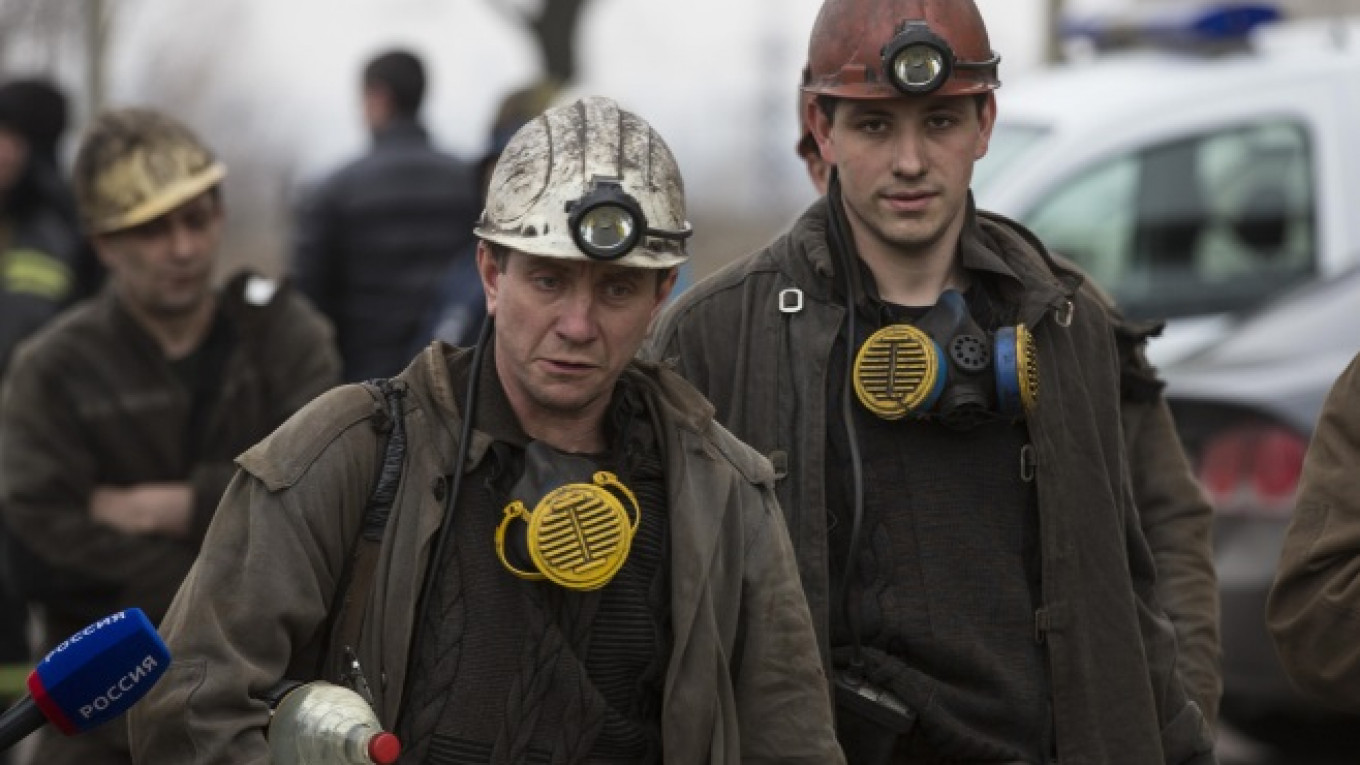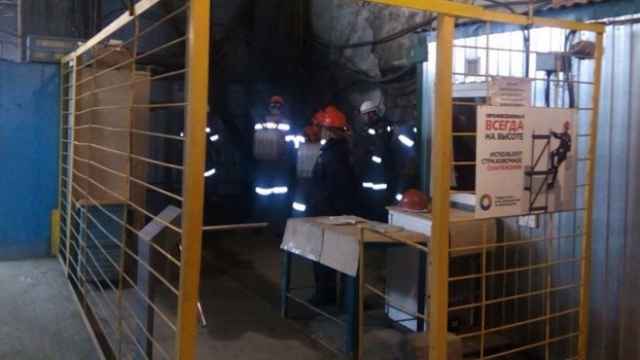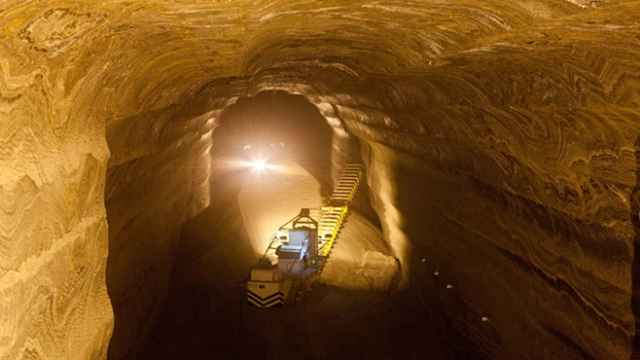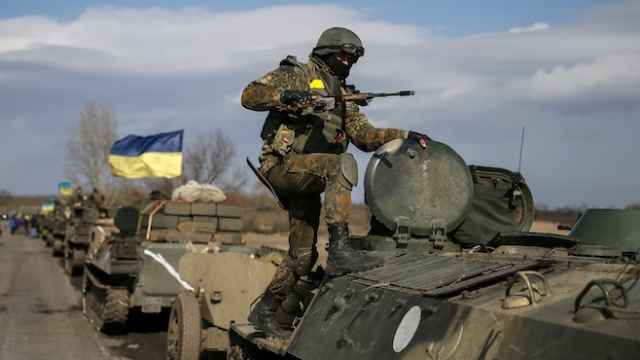A methane explosion ripped through a coal mine before dawn Wednesday in war-torn eastern Ukraine, killing at least 17 workers, officials said.
Miners arriving for work were enlisted to assist with what started as a rescue mission, but gradually became an operation to retrieve a mounting number of dead. That effort was hampered by limited access to the deep subterranean network.
The explosion at the Zasyadko mine in Donetsk, an eastern city under the control of Russian-backed separatists, wasn't caused by shelling, rebel authorities said. Eastern Ukraine has been wracked by fighting between government forces and Russian-backed rebels for almost a year, a conflict that has killed more than 6,000 people.
The blast occurred more than 1,000 meters (3,280 feet) underground as 230 workers were in the mine, separatist authorities in Donetsk said in a statement, blaming a combustible mixture of methane and air - a common cause of industrial mining accidents. The bulk of those laborers were evacuated after the explosion.
Yuliana Bedilko, a representative for the rebel-managed rescue services, said one body had been brought to the surface in the morning and that another 16 were located below ground by Wednesday evening.
Rebel officials had said earlier that 32 workers were unaccounted for, suggesting 15 still remained trapped as of the evening.
One lightly wounded miner being evacuated, who gave his name only as Sergei, told The Associated Press that he saw five bodies being pulled out, but provided no further details.
Another injured miner, 42-year-old Igor Murygin, said at a hospital in Donetsk that he was blown off his feet by the impact of the explosion.
"When I came to, there was dust everywhere. People were groaning," said Murygin, who doctors said had burns over 20 percent of his body.
Murygin said the mine had installed new equipment and that nothing appeared to be out of order.
Miners arriving for their morning shift, shortly after the accident, helped in the recovery operation. Reaching the stricken portion of the mine has been complicated, however, as one of the three entrances has been forced closed by artillery shelling that has blighted Donetsk. That entrance is the closest to the area where the trapped miners are located.
Ukrainian Prime Minister Arseniy Yatsenyuk said in Kiev that rebels had prevented a team of 60 Ukrainian rescue workers from reaching the mine to provide assistance. But leading rebel representative Denis Pushilin denied that Ukrainian authorities had offered any help.
"If we truly need assistance, we will turn to Russia," Pushilin was quoted as saying by the Donetsk News Agency.
Separatist officials trickled into the grounds of the mine throughout the morning, but all refused to respond to questions, a stance that frustrated many miners' families.
Valentina Petrova came to the Zasyadko mine looking for her 47-year-old son, Vladimir.
"He was supposed to retire next year. Everyone is angry that they say on TV that 32 people died but nobody tells us anything," she said around lunchtime, as contradictory reports sowed further uncertainty about what had happened at the mine.
Workers complained volubly about the long history of safety violations at the Zasyadko mine.
One, who gave only his first name, Kostya, said two of his brothers had been injured in earlier blasts at the same mine.
"We work like crazy for peanuts. We want this place to be safe. We want our children to be able to work here," he told the AP.
The mine has a history of deadly accidents, including one in November 2007 that killed 101 workers, and two more in December 2007 that killed 52 miners and then five more workers.
Ninety-nine people were killed in Ukraine's coal mines in 2014, according to mining safety bodies. Thirteen of those deaths were a direct result of the war in the east, where mines have frequently been struck in artillery duels between rebel and Ukrainian government forces.
A Message from The Moscow Times:
Dear readers,
We are facing unprecedented challenges. Russia's Prosecutor General's Office has designated The Moscow Times as an "undesirable" organization, criminalizing our work and putting our staff at risk of prosecution. This follows our earlier unjust labeling as a "foreign agent."
These actions are direct attempts to silence independent journalism in Russia. The authorities claim our work "discredits the decisions of the Russian leadership." We see things differently: we strive to provide accurate, unbiased reporting on Russia.
We, the journalists of The Moscow Times, refuse to be silenced. But to continue our work, we need your help.
Your support, no matter how small, makes a world of difference. If you can, please support us monthly starting from just $2. It's quick to set up, and every contribution makes a significant impact.
By supporting The Moscow Times, you're defending open, independent journalism in the face of repression. Thank you for standing with us.
Remind me later.






